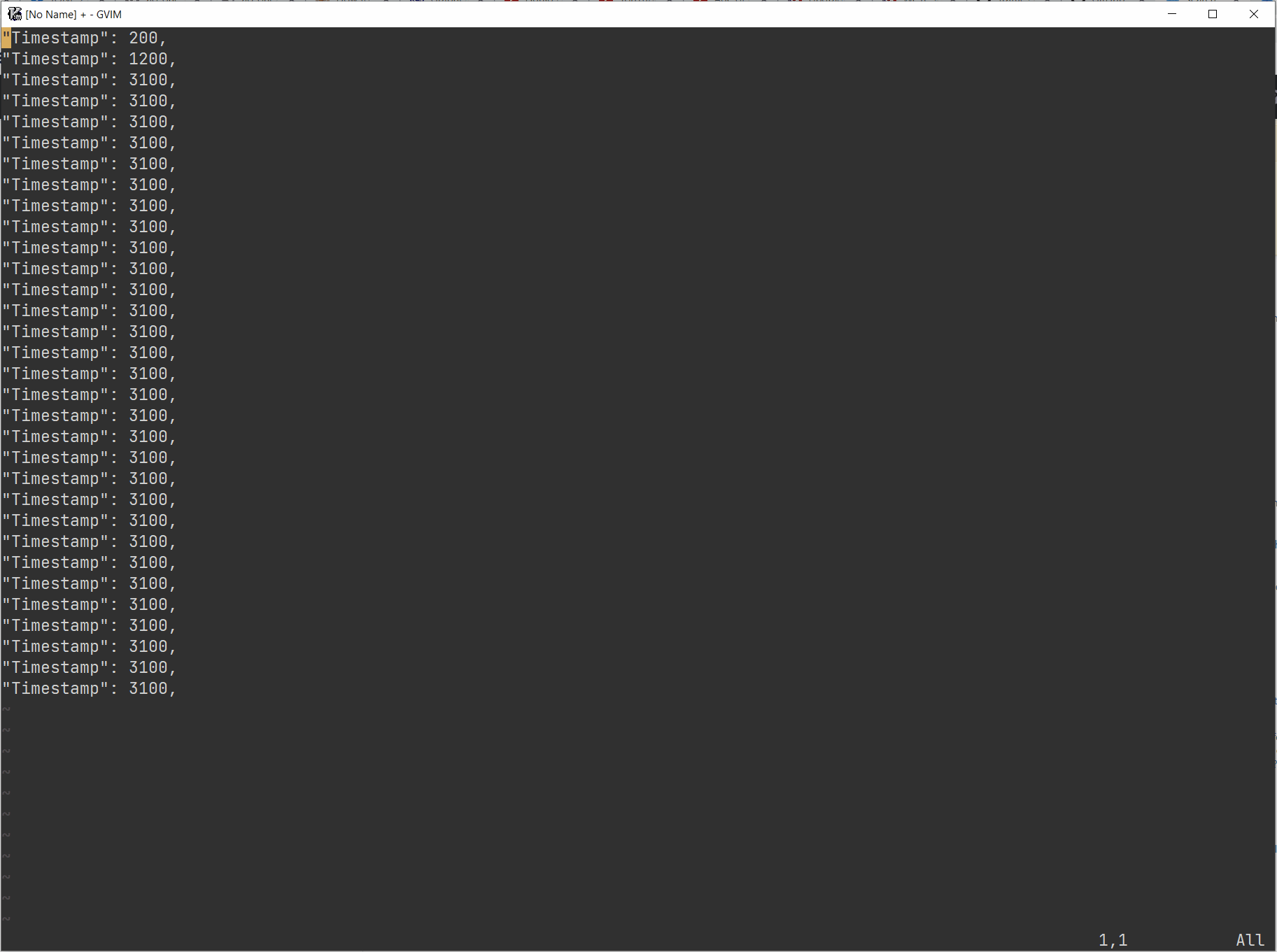I have several lines that look like the following:
"Timestamp": 200,
"Timestamp": 1200,
"Timestamp": 3100,
I want to replace all the numbers, starting at 10 and incrementing by 10's so it looks like this:
"Timestamp": 10,
"Timestamp": 20,
"Timestamp": 30,
